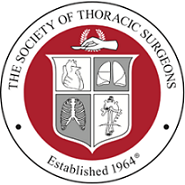Thoracic surgery encompasses the operative, perioperative, and surgical critical care of patients who acquired and congenital pathologic conditions within the chest.
What is a thoracic surgeon?
Thoracic surgery encompasses the operative, perioperative, and surgical critical care of patients who acquired and congenital pathologic conditions within the chest. Thoracic surgeons treat diseased or injured organs in the chest, including the esophagus (muscular tube that passes food to the stomach), trachea (windpipe), pleura (membranes that cover and protect the lung), mediastinum (area separating the left and right lungs that contains the heart), chest wall, diaphragm (separates the chest from the abdomen), pericardium (membrane covering the heart), heart (including the pericardium, coronary arteries, valves and myocardium), and lungs. The most common diseases requiring thoracic surgery include heart lesions, such as coronary artery disease and valve problems, lung cancer, chest trauma, esophageal cancer, emphysema, and heart and lung transplantation.
How to become a thoracic surgeon?
Specialty training required prior to certification: Six to eight years
Thoracic surgery is divided into three subspecialties:
(1) adult cardiac surgery, (2) congenital or pediatric heart surgery, and (3) general thoracic surgery. Residency training options vary and include a six-year integrated medical school/residency program, traditional general surgery residency followed by two or three years of thoracic surgery residency, and four years of general surgery coordinated with three years of thoracic surgery residency.
What does a thoracic surgeon do?
From the thrill of working on a beating heart to being on the cutting edge of the latest robotic and minimally invasive technology, thoracic surgery offers excitement and rewards that few medical or surgical specialties can match. Thoracic surgeons, who specialize in the surgical management of disorders of the heart, lungs, esophagus and major blood vessels of the chest, treat the top two causes of death in the United States: heart disease and lung cancer.
Career options include academic, private practice and/or research positions. Although sometimes misrepresented, the prospects for career opportunities in thoracic surgery are positive. As the US population ages, the need for thoracic surgical procedures will continue to increase. With more than 50 percent of currently active thoracic surgeons expected to retire within the next decade, a shortage within the field is predicted by 2020.
Thoracic surgery is a demanding career best suited to the smartest, most dedicated and most passionate practitioners. It is not a nine-to-five job. However, in recent years a younger generation of thoracic surgeons has defined and achieved its own work-life balance goals.
Because thoracic surgeons oversee all aspects of the thoracic surgery operating environment as well as clinical management of patients, strong leadership skills are critical. Fine motor technical ability is also important, and most can learn even the most complex technical tasks over time with persistence and good teaching.
Thoracic surgeons frequently have intense interaction with patients and their families, particularly during conversations preceding high-risk surgeries. There is a significant amount of patient interaction in this short time, and such interaction can have a major impact on patients’ lives. Patients frequently feel a special bond with the surgeon who performed their heart bypass or lung cancer surgery, remembering and staying in touch over extended periods of time. While practicing thoracic surgery may be one of the most demanding surgical specialties, it is also one of the most rewarding.

Society of Thoracic Surgeons
sts.org
633 N Saint Clair St
Ste 2100
Chicago, IL 60611
(312) 202-5800
Contact form